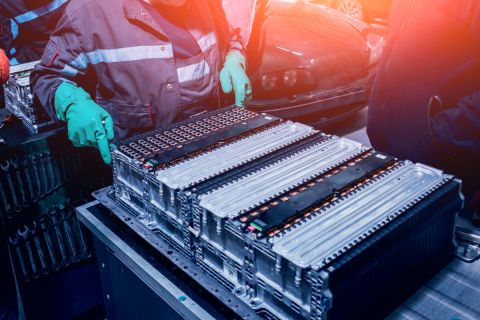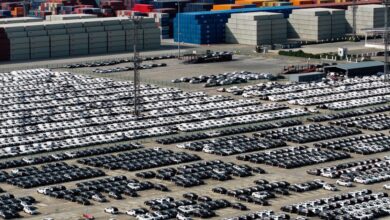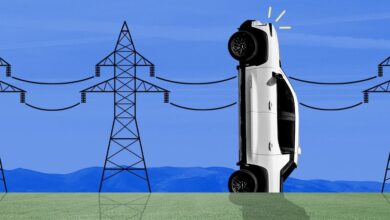Researchers say a copper shortage could imperil Michigan’s EV future

Bridge Michigan spoke to Adam Simon, a professor of earth and environment sciences at the University of Michigan and lead researcher on the report, about its findings.
Here’s what you need to know:
Copper is essential to the EV transition
EVs require three to five times more of the highly-conductive metal than internal-combustion vehicles.
Copper is used in EV batteries, wiring and charging stations. It helps store energy and transfer it from lithium-ion or lead-acid batteries to the electric motors. It’s on the federal list of critical minerals needed to support the EV transition.
“Without copper,” Simon said, “you don’t have an EV.”
Still more of the element is needed to update the electrical grid for EV charging. That means as the industry shifts to EVs, automakers will need far more of the metal.
But there’s not enough
EVs aren’t the only competitor for more copper.
Global copper demand is already rising to electrify the developing world. That alone, researchers concluded, is expected to require more copper in the next 30 years than has been mined in all of human history.
To meet that demand, annual copper mine output needs to increase 82% by 2050, from 20.4 million to 37.1 million tons per year, Simon and his co-author, Lawrence Cathles of Cornell University, concluded.
Mining companies today “will barely be able to produce enough,” Simon said.
It’s not possible to add EVs on top of that without opening new mines, which helps explain why Michigan, Minnesota and other copper-rich regions are seeing a resurgence in mining exploration.
Unless the industry can find a way to make EVs with less copper, meeting EV demand would require an average of 1.7 new mines every year until 2050, according to the report. Achieving a full net-zero economy could require as many as six new mines per year.
Related:
“And I can tell you, that’s not going to happen,” said Simon.
One problem is that copper deposits have to be found before companies can start mining, and discovery is increasingly difficult.
It requires land access for exploration, followed by drilling, assessment of the mineral and an economic evaluation for a company to decide whether the site is a worthy investment.



